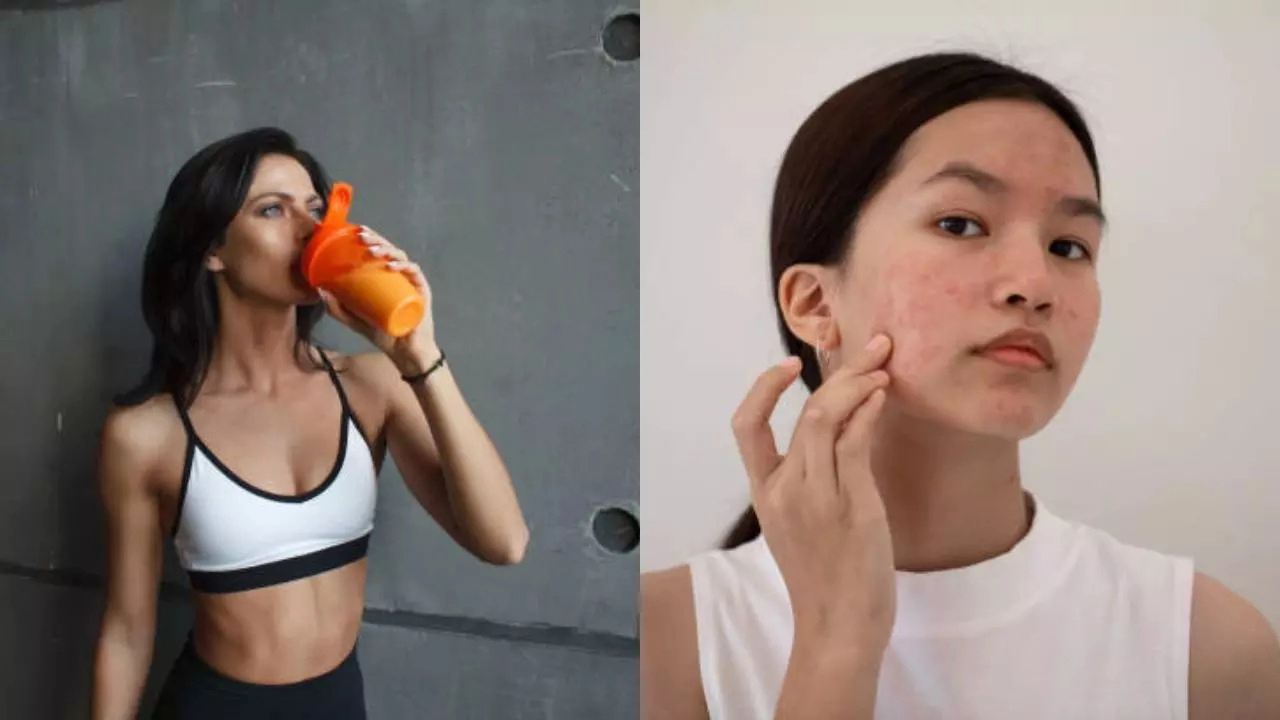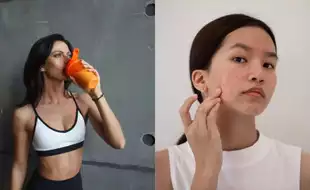
There are many other factors that contribute to acne development - including genetics, stress, and fluctuating hormone levels
Are you heavy into exercise – gymming, eating clean and healthy and still developing severe acne and breakouts? Acne is a common skin condition that leads to pimples, especially on the face, back, shoulders, and chest. While it is a common condition among teenagers, acne can affect people of all ages.
There are many factors that contribute to acne development - including genetics, stress, and fluctuating hormone levels. However, a few dietary triggers like whey protein shakes can also be the culprit.
What is a whey protein?
According to experts, whey protein is among the two types of protein in dairy milk - with the other being casein. It is the liquid that remains after milk has been curdled and strained as whey gets separated from the curds when making cheese, and then it goes through multiple processing steps to become what we know as whey protein. It is easily available in the markets in the form of supplements that have beneficial nutrients and amino acids.
Whey protein powders are highly popular with athletes and bodybuilders as they digest quickly, making them a more efficient source of quick fuel for exercise.
Why does whey protein cause acne and breakouts?
Despite being super beneficial for building muscles, whey can increase your chance of breakouts. Experts say even though the supplement is safe for most people if consumed in moderation, high doses of whey protein - more than 30 grams per day, can lead to acne and pimples.
It happens due to the supplement being a dairy product, which raises a hormone implicated in acne development known as insulin-like growth factor 1 (IGF-1). Also, whey protein contains many proteins like albumin, globulin, and immunoglobulin, but one of the amino acids in these proteins is leucine, which triggers acne or eczema flare-ups in some people, even in low doses.
However, experts say it does not mean that everyone who uses whey protein will get breakouts, as it depends on every individual and their hormonal levels and who is more prone to breakouts. So, if you notice a trend of more acne whenever you consume whey protein, the best way to get over it is to stop eating or drinking it.
Best alternative to whey protein to stop acne
There are a few non-dairy alternatives to whey protein, which you can take regularly without any side effects. A few of these include:
Egg white protein
It is among the most nutritious foods you can take to up your protein intake without any serious issues. Egg whites are loaded with leucine - the branched-chain amino acid that plays an important role in muscle building.
Pea Protein
For those who follow a vegan or vegetarian diet, try taking pea protein – as a snack or drink with a mild taste. Pea protein does not taste like peas and is made from yellow peas, not green, so it is lighter in colour than you might think.
Brown rice protein
Brown rice has been among the most fortified plant-based proteins which are neutral in flavour, allergen-free, and is often available sprouted.
Get Latest News Live on Times Now along with Breaking News and Top Headlines from Diet, Health and around the world.

